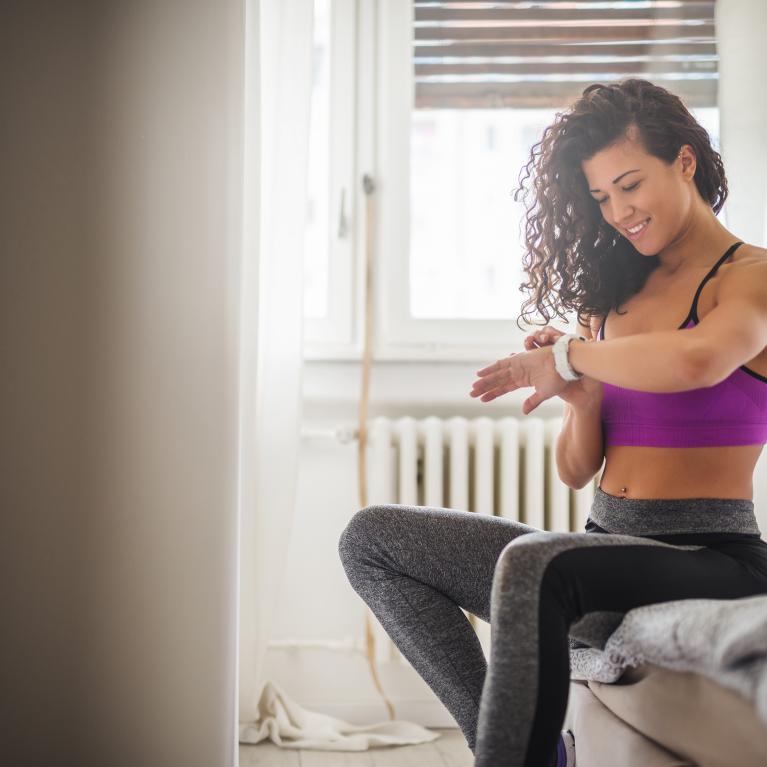
Whether you're a seasoned marathoner or a first-timer, the thrill of Event Day is undeniable.
However, ensuring you cross the Finish Line safely is just as important as securing a PB.
Nicky Edwards, who has taken on the TCS London Marathon four times, shares her six tips for having an exceptional Event Day.
How are you really feeling?
Nerves and a queasy stomach are quite normal on Marathon Day morning, but if you’ve been up all night with vomiting or diarrhoea that’s more than jitters and you need to consider whether you're well enough to start. This advice applies for any other illness such as coughs and colds too.
I appreciate that after all of your hard work you don’t want to miss out at the last moment, but your health is the priority. It’s better to skip the event than risk serious health complications.
If you're running with any niggles consider adjusting your pace or goals. Marathon Day is not the time to push your limits if you're not feeling 100%. It’s better to finish slower than your goal time than to risk not finishing at all.
Dress for the weather
The great British weather is so unpredictable that you can have all four seasons in one day. So make sure to check the forecast the night before and dress accordingly.
Don't forget to apply sunscreen. If it’s cloudy you may not think you need it, but you’re going to be exposed for a long time so protect yourself and remember your ears. A peaked hat can be helpful to keep the sun (or rain) out of your eyes.
Remember to wear tried-and-tested running kit to avoid any nasty surprises such as blisters or chafing. Don’t be tempted to try new shoes or clothing.
Layering is key as you can remove layers if you get too warm. It can be chilly in the morning while you are travelling and waiting in the Start Area.
Wear some old clothes to keep you warm and donate them to the Salvation Army before you start.
If it’s raining, wearing a plastic poncho or a bin liner with holes for your head and arms can help keep you dry, and they are great windshields too!
Keep hydrated before and during the event
In the few days before Event Day keep yourself well hydrated. It can be helpful to keep a water bottle with you if you tend to not drink much throughout the day.
On Marathon Day, drink little and often. I know lots of people who don’t drink on the morning of an event as they don’t want to pee too often. Unfortunately this can lead to dehydration which can cause severe cramps and heat stress. Drink to thirst and use electrolyte drinks to aid hydration.
A bottle belt or hydration vest will enable you to drink according to your need throughout.
Remember, what you eat can affect your performance
In the few days leading up to Marathon Day slightly increase your carbohydrate intake to stock up your glycogen stores as this will provide fuel on the day. The night before, have a simple high-carbohydrate meal that's easy to digest.
Don’t go mad and overeat as this may cause bloating and discomfort that disrupts your sleep. Breakfast on Marathon Day should be simple, easy to digest, high-carbohydrate foods such as white bread toast with peanut butter and banana, or porridge with honey. This should be something you normally consume before running, don’t try anything new on Event Day.
For those staying in hotels, don’t be tempted to fill up with a large fried breakfast just because it’s included in the price of your stay. Fatty foods are harder to digest and you don’t want to ruin your run for the sake of a breakfast. Try to allow at least an hour after a small meal or snack and three to four hours after a large meal before exercising to avoid stomach issues.
Get familiar with the course
It’s good to know where the toilets and Drink Stations are located as well as the medical points, just in case.
If you are feeling unwell or suffering with cramp or niggles, please stop and seek advice from the Medical Team. Often a quick massage is all you need to calm those niggles and get going again. Stop sooner rather than later before the problem escalates. They will also have a large supply of Vaseline if you find you are getting chafing anywhere!
Change and eat after you've finished
Keep slowly moving after you finish. Some people feel lightheaded and dizzy when they stop suddenly because less blood is being pumped back to the heart. The movement of the leg muscles acts as a pump and can stop you from feeling faint as you cross the Finish Line.
Wrap up as you will cool down quickly when you stop. If possible change into some clean clothes to reduce any discomfort from sweaty clothes. Everything will be wet and sweaty, so clean underwear is ideal too.
Try and get some nutrition as soon as possible to replenish your carbohydrate stores and protein for muscle repair and recovery. Ideally you want to do this as soon as possible. Men have a two-hour window post exercise to get their nutrition on board and reap the most benefit, but women only have 30 minutes!
You probably won’t feel like eating straight afterwards, but try and consume something small as soon as possible. A banana and a recovery shake containing carbohydrates and protein can be really helpful to help you rehydrate and replenish your stores. Salty snacks will help you replenish electrolytes. You don’t need to consume large volumes of fluid straight away. You can rehydrate slowly over the next 24 to 48 hours.